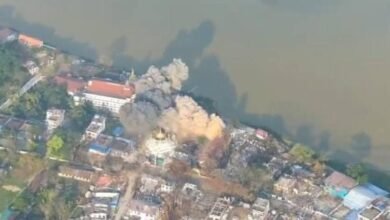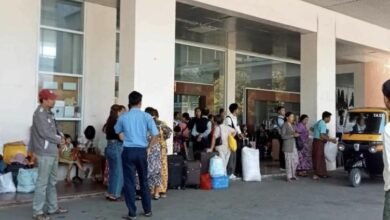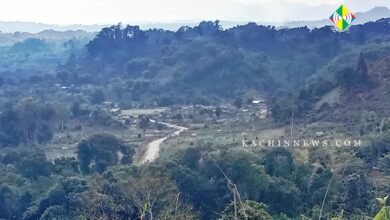
As the Burma Army’s extended unilateral ceasefire is set to expire on June 30, questions remain as to what lies ahead concerning peace and conflict in Burma’s north and east.
Talks were supposed to have been held between the Burmese government and four members of the Northern Alliance of ethnic armed organizations, including the Kachin Independence Army (KIA), by the end of May. The possibility of a bilateral ceasefire had been the focus of the discussions, which never happened.
KNG editor Naw Din spoke with the Myitkyina-based Peace-talk Creation Group’s (PCG) Duwa Lamai Gum Ja about why this meeting was not held, and what the consequences might be if it continues to be postponed.
There was an agreement for the government and four Northern Alliance members to meet in late May but they did not. What is the main reason for this?
They disagreed on the meeting venue. The Northern Alliance groups didn’t accept the venue that the government proposed, and the government rejected the venue that the Northern Alliance group proposed. That’s why they didn’t meet. I don’t know all the details.
Where did the government offer for the meeting to be held?
The government wanted to hold the meeting in Naypyidaw, Yangon or Myitkyina but the Northern Alliance group wanted to hold it in Muse.
Why did the Northern Alliance reject the meeting venue proposed by the government?
I don’t know exactly. The meeting didn’t occur because of the debate over the meeting venue.
Are they still negotiating about where the meeting should be held?
The Northern Alliance is discussing it. The meeting is still underway. They want to meet in Muse because the Burma Army and AA [Arakan Army] forces are still clashing in Rakhine State. That’s why they don’t want to meet in another place.
Now it’s already mid-June. What do you think—is it possible they will meet in June?
I don’t know. They are still discussing it. I don’t know what will happen with this situation.
If they meet with the government in government’s proposed venue, in your opinion, are they going to sign a bilateral ceasefire agreement?
I think it is still difficult for them to sign a bilateral ceasefire agreement because they haven’t held a discussion regarding the detailed procedure for signing a bilateral ceasefire agreement.
The government has said that they are ready for a bilateral ceasefire agreement. What I understand is that KIO [Kachin Independence Organization] and the Northern Alliance are also ready to sign a bilateral ceasefire agreement. They already sent a ceasefire proposal to government. Have there been challenges in the negotiation for signing a bilateral ceasefire agreement?
I don’t know. I don’t know whether the government is ready or not for a bilateral agreement. They [the government] haven’t talked about it. Currently, they still disagree on the meeting venue.
Does PCG plan to mediate between them in the meeting?
Regarding the disagreement of the meeting venue, we cannot currently help them.
Why is the meeting venue so important to them?
Clashes are still happening between the Burma Army and AA forces, so they are worried about their security and their safety. That’s why they don’t want to go to the government’s proposed venue. They are therefore demanding to hold the meeting in the border area [in Muse].
If the clashes stopped between the Burma Army and AA forces, could they meet in the venue proposed by the government?
I think it’s possible.
What do you think: will they agree on a meeting venue in June?
I cannot confirm it. I don’t know exactly. I don’t know whether the government will compromise on it.
If they fail to meet again, is it possible that there will be military tension between the government and the Northern Alliance?
The Tatmadaw’s unilateral ceasefire will expire this June. They already extended the unilateral ceasefire. Clashes are likely to resume if they fail to sign a bilateral ceasefire agreement.
Contact at lahpainawdin@gmail.com




